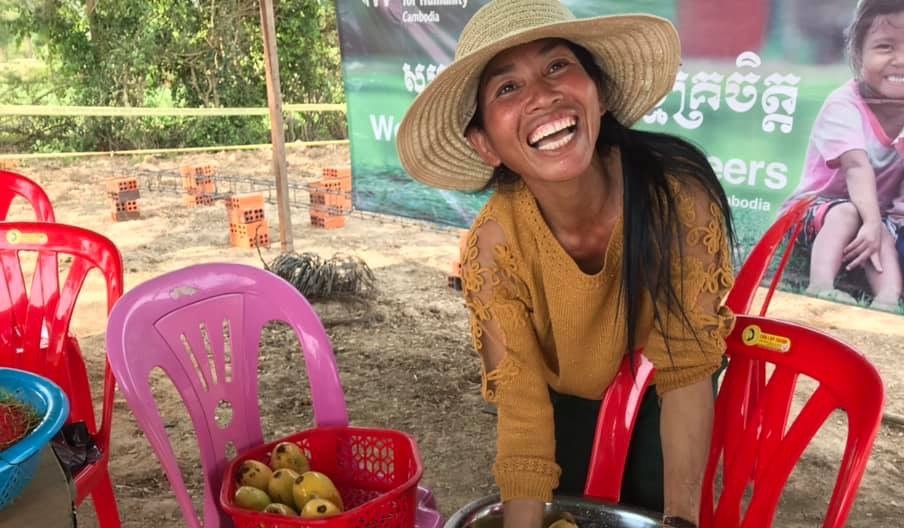Each day we would be met at the bottom of the bus stairs with a beaming smile from ear to ear. Peou and her daughter Mariya would be there to greet us to say ‘Choum Reap Sor’ with hands together as a sign of respect. Their arms would be outstretched to offer their help carrying our water, snacks and equipment for the day.
As our team of volunteers worked through the heat and manual labour to build this deserving family a home, Peou would be full of energy, and always smiling, as she cleaned our chairs, prepared mangosteen, and cared for her children.
Her husband Sam was the hardest worker of us all. As we had water break after water break, he continued to work. Before we arrived in the morning, and through the evening well after we were back at our comfortable hotels and relaxing in the pool.
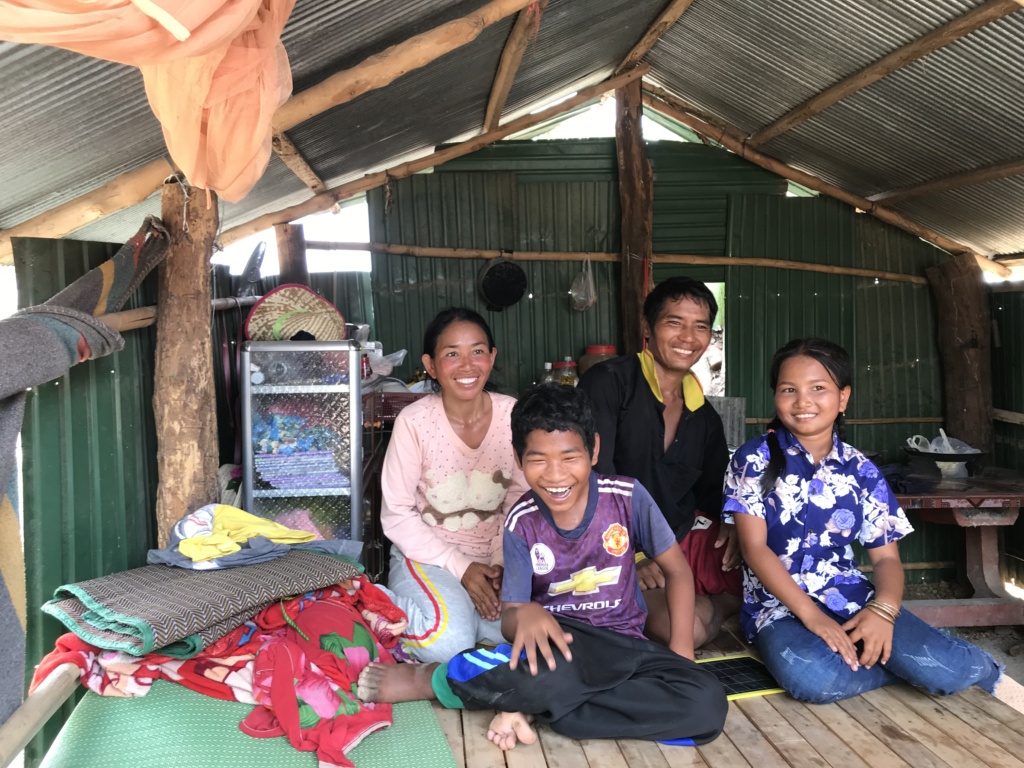
Each afternoon when we’d leave, the smiles would still be there as they waved goodbye, and they did their best to say in English ‘Thank you.’ By the end of the week they had nailed their English lesson and we’d hear it over and over again to remind us of their appreciation.
After spending three days laughing and working alongside this happy family, I sat down with them to hear their story. Working on the new home had been hot, but sitting in their current home – tiny at just 3×4 and completely made of zinc – I was instantly sweating.
“At the dry season, we can’t even stay in the house as its too hot, but compared to our previous house that was made from palm leaves this house is still much better.”
It is too small to sleep all four family members so Sam and Peou often sleep in the kitchen about 30 metres away.
To live in these conditions day in and day out was unimaginable for me. Their floors were made of hard clay so during the wet season would be mud. There were large gaps underneath the walls so insects and rats could easily get in. We found scorpions in a few bricks throughout the week which was alarming enough, let alone trying to sleep with young children with them in the room!
To earn an income (just USD $5 a day) Sam is a pesticide sprayer during the wet season. During the dry season he is a rat catcher. He gave me a demonstration of a rat trap, that he’d hook up with a tempting snail, and laughed as I recoiled when it snapped shut. He needs to catch 13-14 rats in order to sell 1kg of meat for USD $1 to the local markets.
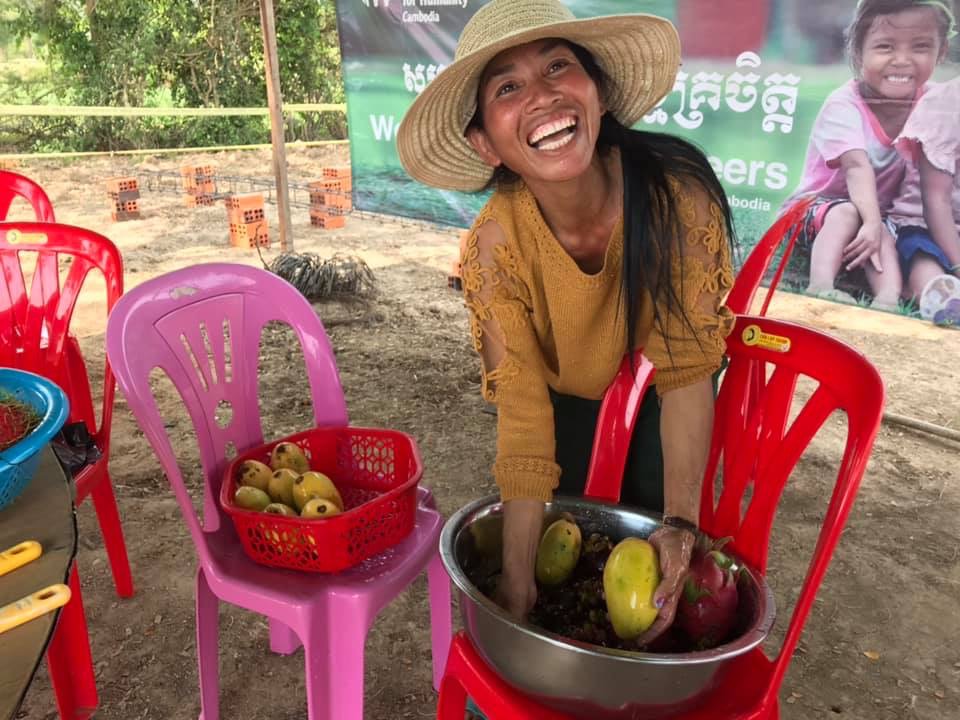
Peou says she is unable to work as she is too weak. This surprises me as she had been so energetic through the week, but I understand as she explains further. She contracted HIV from her first partner, and struggles to sleep 2-3 hours a night as she is nauseous and lies awake worrying about her family.
HIV was passed to her son, Ny, who also has severe cerebral palsy and struggles to walk or communicate properly. At the start of the week he would stay in his home, watching as we worked away. As he grew more comfortable with us around, he ventured out and by the end of the week was standing beside his sister as we got off the bus each day. He even began catching and throwing the ball with us – and he had a very strong left arm throw!
While he and his mother visit the doctor occasionally, they cannot afford medicine so their condition will not improve.
“In our life, we have never known a comfortable time. We have only been through a hard life. When we heard we would be supported by Habitat, I became really excited and nothing can describe my feeling right now. I hold my hands together, wishing you all the best of luck and success with the work you complete. Thank you so much!” Peou shared.
Mariya is just 10 and the family can’t afford to transport her to school. But she rides her bike there and back every day, and loves to learn. She is very bright, and shows us her skills with puzzles as she creates a felt picture of a house one afternoon. Her new home will provide a safe, dry space for her to study.
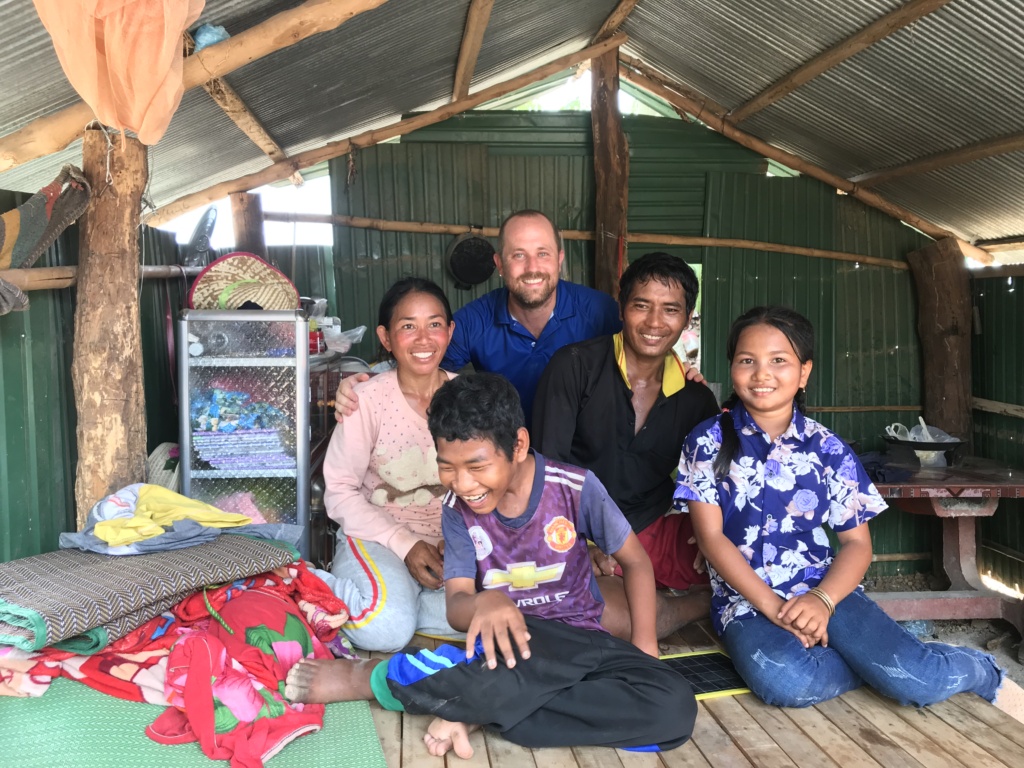
I’ve visited many families like Peou and Sam’s. Never have I been struck with such emotion as I related their lives to mine. I am also in my mid-30’s and with two young children to care for. I’ve never needed anything. Back home, I say I want a bigger house, to go on a longer, more extravagant holiday, or buy my son a Nintendo for his birthday. But we don’t need these things.
They need medicine. They need money for food. They need comfort. They need hope.
The importance of this new home in providing hope for the family, where there was previously very little, was not lost on me. Sam joked with me that each night through the week he’d yell out to Peou to come back inside and stop staring at the new house.
Their strength as a family is undeniable. A family’s bond is universal. This is why it hits me so hard. Why should I be so lucky and this family be so, so unlucky?
I have some comfort in knowing that, through the work I do, and Habitat does around the world, we can partner with families like this to provide at least one universal right. The right to safe shelter.
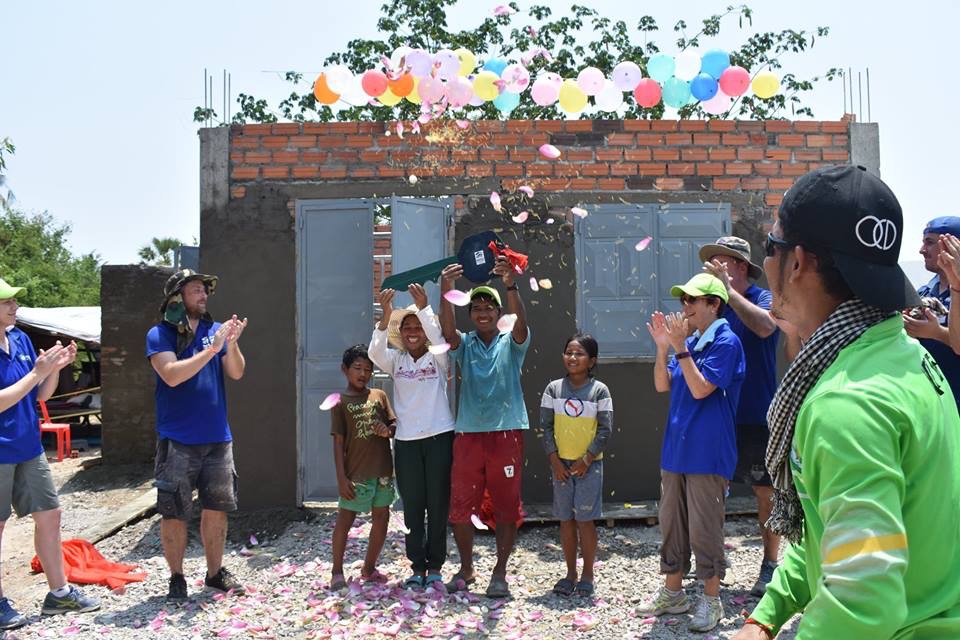
As I started to thank them for welcoming us here, and allowing us to be a part of their lives, I needed to stop. I told them there was so much more that I wanted to say but I couldn’t get the words out.
I got back to work, and after sharing a final farewell lunch we said our goodbyes. It’s always hard saying goodbye to families you work with and get to know so well, but this one was even harder.
Back home now, all I want to know is that they’ll be ok, and all I want to do is to go back to help some more. But I have some comfort in knowing that helping in our small way made a real impact on their lives.
As Peou said to me as she looked over my shoulder at her new house being built…
“I will be gone one day, but this house will remain.”
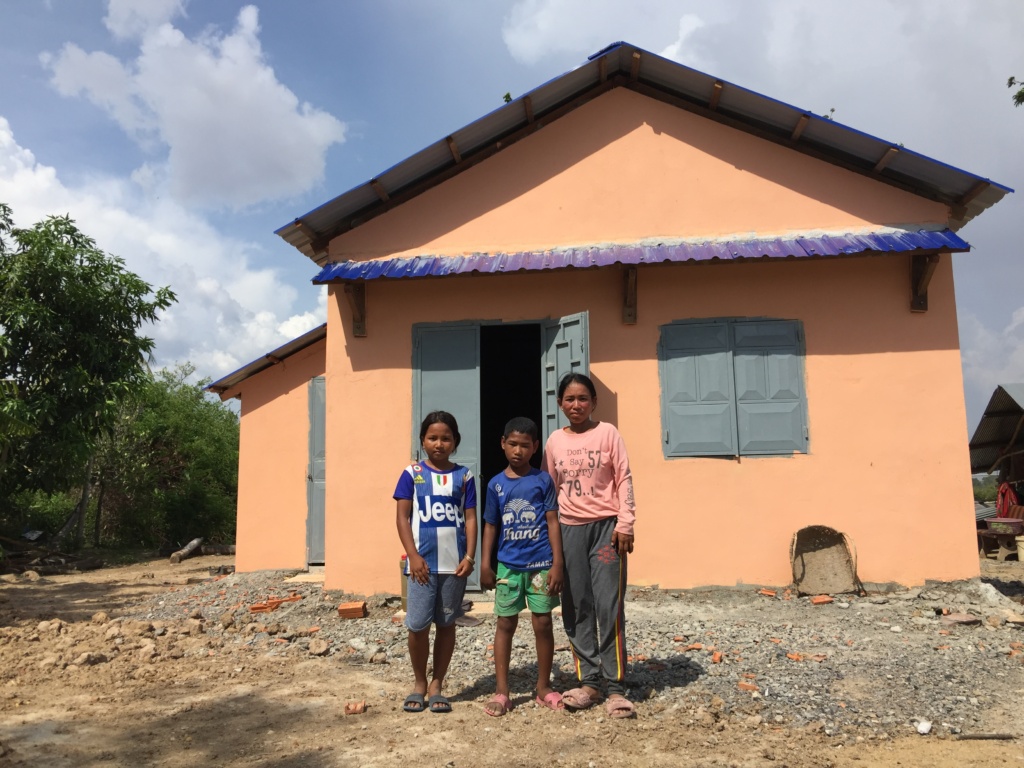
You can help families like Peou’s by donating today or you can volunteer.



